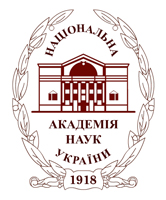«Pages of Military History of Ukraine» is a digest of scientific papers founded in 1997 by the Presidium of the National Academy of Sciences of Ukraine (NAS) and the Institute of History of Ukraine of the NAS of Ukraine. From the beginning, this periodical was prepared by the Department of History of Ukraine of the Second World War, and since December 2022 - by the Department of Military Historical Research of the Institute of History of Ukraine of the NAS of Ukraine. The editor-in-chief was Academician of the NAS of Ukraine Valerii Smolii, and the executive editors were Mykhailo Koval’ and later Oleksandr Lysenko. The digest is published twice a year. «Pages of Military History of Ukraine» was included in the list of professional scientific journals in the field of history.
The digest became one of the few specialised periodicals for presenting the results of scientific research in the field of military history of Ukraine. The wide chronological and thematic scope made it possible to attract specialists in military history of different periods of foreign and national history.
At the turn of the twentieth and twenty-first centuries, «Pages of Military History of Ukraine» turned into an intellectual platform where new methodological approaches to understanding the history of wars and armed conflicts, and especially the Second World War, which was in many ways a defining event of the last century and formed the core of memory policy in many countries of the world, were tested. A significant segment of publications dealt with updating the terminology and other aspects of overcoming the Soviet legacy in the form of the official narrative of the pre-perestroika period and historical policy. The following topics have become traditional:
1. Methodology, historiography and source studies.
2. Combat actions on the fronts of the Second World War.
3. History of the Soviet Resistance Movement in Ukraine.
4. The history of the Organisation of Ukrainian Nationalists and the Ukrainian Insurgent Army.
5. The Nazi occupation regime.
6. The post-occupation period.
7. Russo-Ukrainian war (2014-2026).
At various times, the digest has featured contributions by experts from Ukraine, Poland, Germany, France, Canada, the United States, Hungary, Japan, and other countries.
The work of the authors of the «Pages» allows us to trace the complex algorithm of levelling the vestiges of Soviet historiography, developing new thematic fields and research tools, searching for modern search and interpretation procedures, comparing the level of military history studies in independent Ukraine and other countries, and identifying existing gaps and opportunities for filling them.
Over the past decade, the digest has published a number of materials outlining conceptual and methodological approaches to the preparation of a major research project – «The Second World War. Ukraine. Encyclopaedia». These articles reflect the theoretical aspects and practical experience of creating reference and encyclopaedic content in different countries, develop general principles, structure, recommendations for the content of slogans and the balance of historiographical, biographical, problematic, eventual, and illustrative materials.
The publications of specific historical and archaeographic works by Ukrainian and foreign historians are based on a wide source base. A significant segment of it has been developed in recent decades, and this process has been synchronised with the declassification of documentary layers in archival repositories of different countries, as well as the intensification of oral history research and the formation of an array of ego-sources. A separate niche of research is represented by texts on forced labour and the fate of Ukrainian Ostarbeiters, which were stimulated by payments made by the government of the Federal Republic of Germany to forced labourers and prisoners of Nazi camps during the Second World War.
Most of the articles describe the realities of the Soviet, German, and Romanian occupation of Ukrainian lands during the war, the peculiarities of the occupation regimes, the means of implementing the instructions of Moscow, Berlin, and Bucharest, the practice of genocide, the Holocaust, terror, behavioural patterns, and survival strategies of various categories of the population and military personnel. A prominent place is occupied by materials that reconstruct the social practices of certain cohorts of Ukrainian society: social solidarity and self-organisation, charity, adaptation to war conditions, collaboration, and migration processes.
New interpretations are given to conceptual approaches to scientific reconstructions of various pages of the Ukrainian national liberation movement and the Soviet underground and partisan movements. An important element of this publishing project is publications in the genre of scholarly criticism, as well as news reports on significant events in scholarly life in Ukraine and abroad.
Some issues of the digest are thematic. The publication is intended for historians, archivists and museum workers, teachers, postgraduate students and students of humanities universities, and a wide range of readers.
The subject matter of the digest is related to contemporary social challenges - the need to consolidate society around the commemoration of war victims, restore historical justice, form modern models of historical memory, and intensify educational efforts.
In connection with Russia's large-scale aggression against Ukraine, the profile of the publication is being adjusted: the editorial portfolio is to be filled with articles on the causes, preconditions, course and consequences of the Russian-Ukrainian civilizational confrontation.




